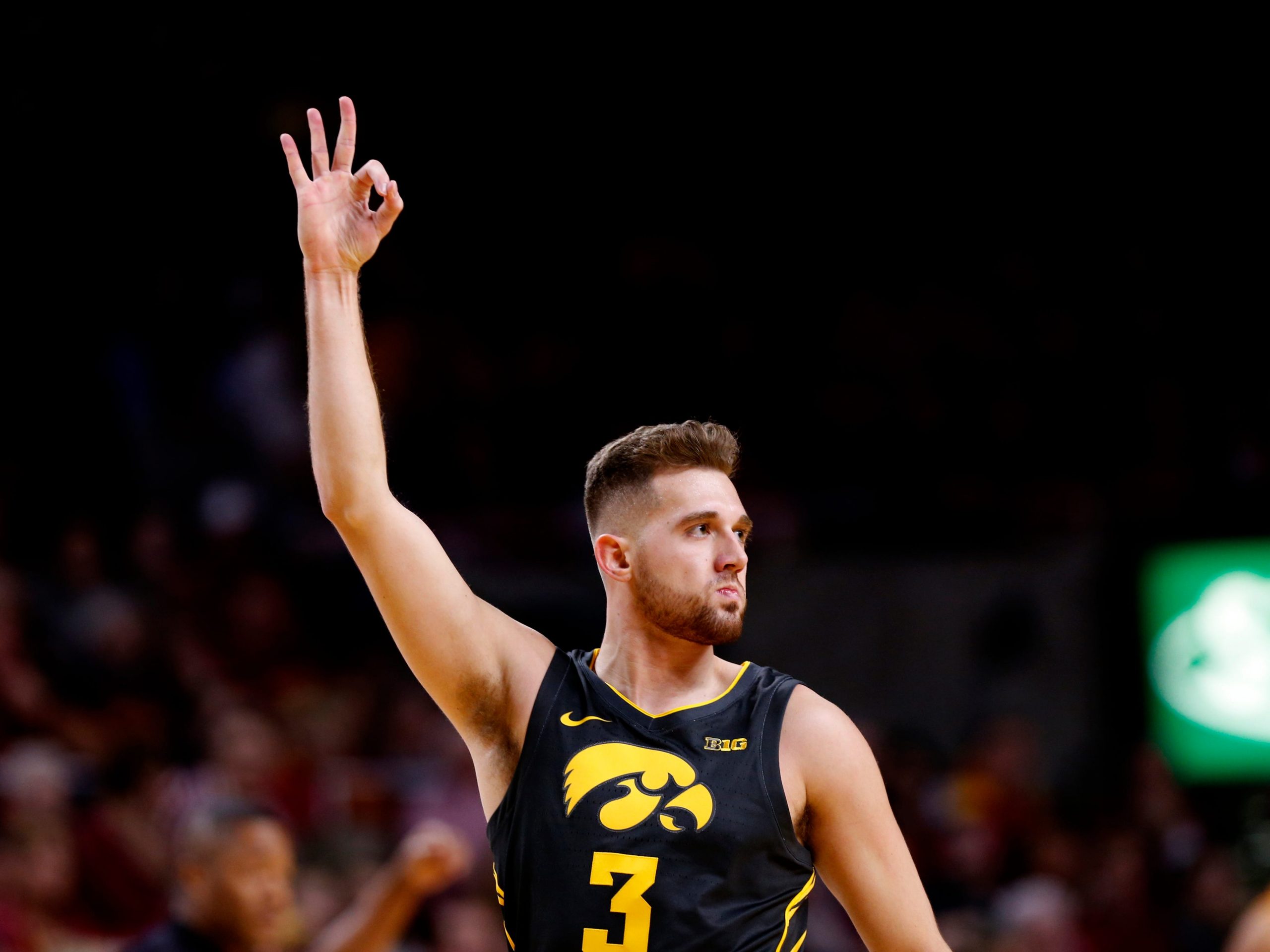
David K Purdy/Getty Image
- College basketball players could sit out or delay an NCAA Tournament game in protest.
- Athletes are currently protesting the NCAA's business practices on social media.
- The hashtag #NotNCAAProperty started trending across Twitter on Wednesday.
- Visit Insider's homepage for more stories.
College basketball players could sit out or delay March Madness games in protest against the NCAA's treatment of athletes.
One day after many current and former college athletes spoke out against the NCAA on Twitter with the hashtag #NotNCAAProperty, Iowa's Jordan Bohannon told The Athletic's Nicole Auerbach that sitting out or delaying a game is not off the table.
-
-Nicole Auerbach 😷 (@NicoleAuerbach) March 18, 2021
"The fact that our core group is (made of) guys who are in the tournament and have a chance to make an impact right now is what makes it so special," Bohannon told Auerbach. "We can have the talks about using our leverage as players to do something like that. Maybe it's protesting a game or delaying a game – because it would be a nightmare for NCAA. I know they don't want that … Right now, we certainly have the leverage to do that."
Players contemplated boycotting the 2018 NCAA Tournament Final Four in San Antonio, Texas, on similar premises. Duncan Robinson, who played on Michigan's final four team that year, said he coordinated a potential boycott with players from the other Final Four teams in the name of compensation for student-athletes in an appearance on The Athletic's "The Beat" podcast last April.
Current Michigan basketball player Isaiah Livers was teammates with Robinson as a freshman on Michigan's 2018 Final Four squad.
"It was very close to happening. That was something I'll never forget," Livers told Auerbach. "It really led the way for me to start researching and using my platform to create equal opportunities for athletes."
Livers was one of the first to join in on the recent conversation on Twitter, following Rutgers' Geo Baker.
Baker started the protest on Wednesday when he sent the first tweet with the hashtag #NotNCAAProperty, condemning the NCAA's policies that prevent athletes from making money while raking in billions in profits from their play.
Baker and his teammates are in a more precarious situation in boycotting a game than other players in Indianapolis. Rutgers is playing its first tournament in 30 years.
"Guys are just excited to be in the tournament. I can't really come in and ask guys to do certain things," Baker told Auerbach.
That hasn't stopped Baker's teammates from joining him in the protests, as Rutgers' Ron Harper Jr. and Myles Johnson also sent Tweets on Wednesday with the hashtag #NotNCAAProperty.
Baker also hinted that the demonstrations and possible boycotts could come in the tournament's later rounds when fewer teams are involved.
"The good part about this tournament is it's over multiple weeks," Baker told Auerbach. "So there's time to come up with something."
The tournament generates nearly $900 million in revenue for schools and conferences from the NCAA's media rights deal with CBS and Turner Sports to broadcast the games. Last year's tournament was cancelled due to the COVID-19 pandemic, and players had to undergo strenuous social distancing practices to make this season and tournament possible.
Yet, they aren't seeing any of the revenue and are still barred from even profiting off their name, image, and likeness.
Players from 15 teams competing in this year's tournament released a list of demands on Thursday in cooperation with The National College Players Association (NCPA).
Their demands include NCAA rule changes to allow athletes the freedom to secure representation and receive payment for the use of their name, image, and likeness (NIL) by July 1, a meeting with NCAA President Mark Emmert, meetings with President Joe Biden's administration to discuss laws that give athletes physical, academic, and financial protections, and a ruling in favor of the plaintiffs in a pending US Supreme Court case that would grant athletes the right to be paid directly.
-Geo Baker (@Geo_Baker_1) March 18, 2021
A rule has been proposed to allow student-athletes to profit off their NIL via endorsements, autographs, and private camps and clinics, opening the door for potentially millions in revenue for student-athletes.
However, the NCAA delayed voting on the proposal in January, noting "several external factors, including recent correspondence with the U.S. Department of Justice, prompted members to delay voting on the proposals."
Congress is expected to draft its own NIL legislation in the coming months, with a recent proposal introduced by Republican Rep. Anthony Gonzalez of Ohio. Meanwhile, Democrat Sen. Corey Booker of New Jersey has proposed an even more radical bill that would ensure that 50% of all revenue made by athletics departments be shared with athletes playing football and men's basketball.